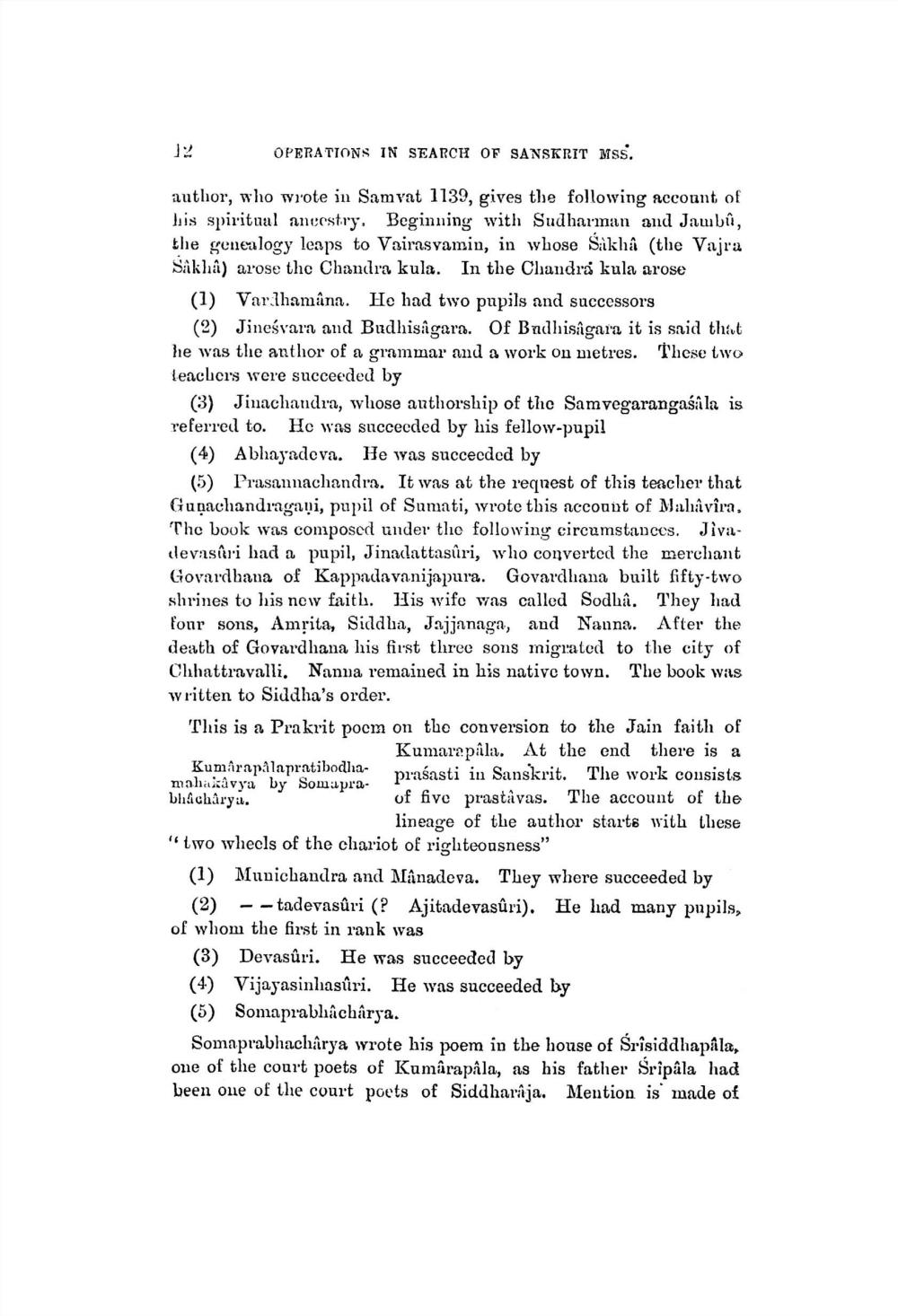________________
OPERATIONS IN SEARCH OF SANSKRIT MSS.
author, who wrote in Samvat 1139, gives the following account of his spiritual ancestry. Beginning with Sudharman and Jamba, the genealogy leaps to Vairasvamin, in whose Sikhâ (the Vajra Såkla) arose the Chandra kula. In the Chandra kula arose
(1) Varilhamâna. He had two pupils and successors
(2) Jineśvara and Budhisagara. Of Bodhisagara it is said that he was the anthor of a grammar and a work on metres. These two leachers were succeeded by
(3) Jinachandra, whose authorship of the Samvegarangasala is referred to. He was succeeded by his fellow-pupil
(4) Abhayadeva. He was succeeded by
(5) Prasannachandra. It was at the request of this teacher that Guņachandragavi, pupil of Sumati, wrote this account of Mahavira, The book was composed under the following circumstances. Jivadevasûri had a pupil, Jinadattasûri, who converted the merchant Govardhana of Kappadavanijapura. Govardhana built fifty-two shrines to his new faith. His wife was called Sodha. They had four sons, Amrita, Siddha, Jajjanaga, and Nanna. After the death of Govardhana his first three sons migrated to the city of Chhattravalli. Nanna remained in his native town. The book was written to Siddha's order. This is a Prakrit pocm on the conversion to the Jain faith of
Kumarapala. At the end there is a Kumarapalaprntibodha- prasasti in Sanskrit. The work consists mahakůvya by Somaprabhacharyil.
of five prastảvas. The account of the
lineage of the author starts with these "two wheels of the chariot of rigliteousness”
(1) Munichandra and Manadeva. They where succeeded by
(2) --tadevasûri (? Ajitadevasûri). He had many pupils, of whom the first in rank was
(3) Devasûri. He was succeeded by (4) Vijayasinhasûri. He was succeeded by (5) Somaprabhacharya.
Somaprabhacharya wrote his poem in the house of Srisiddhapala, one of the court poets of Kumârapala, as his father Sripala had been one of the court poets of Siddharâja. Mention is made of




